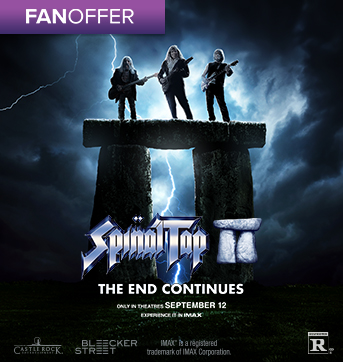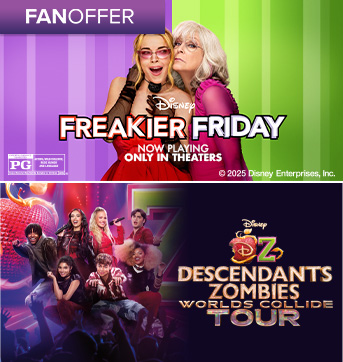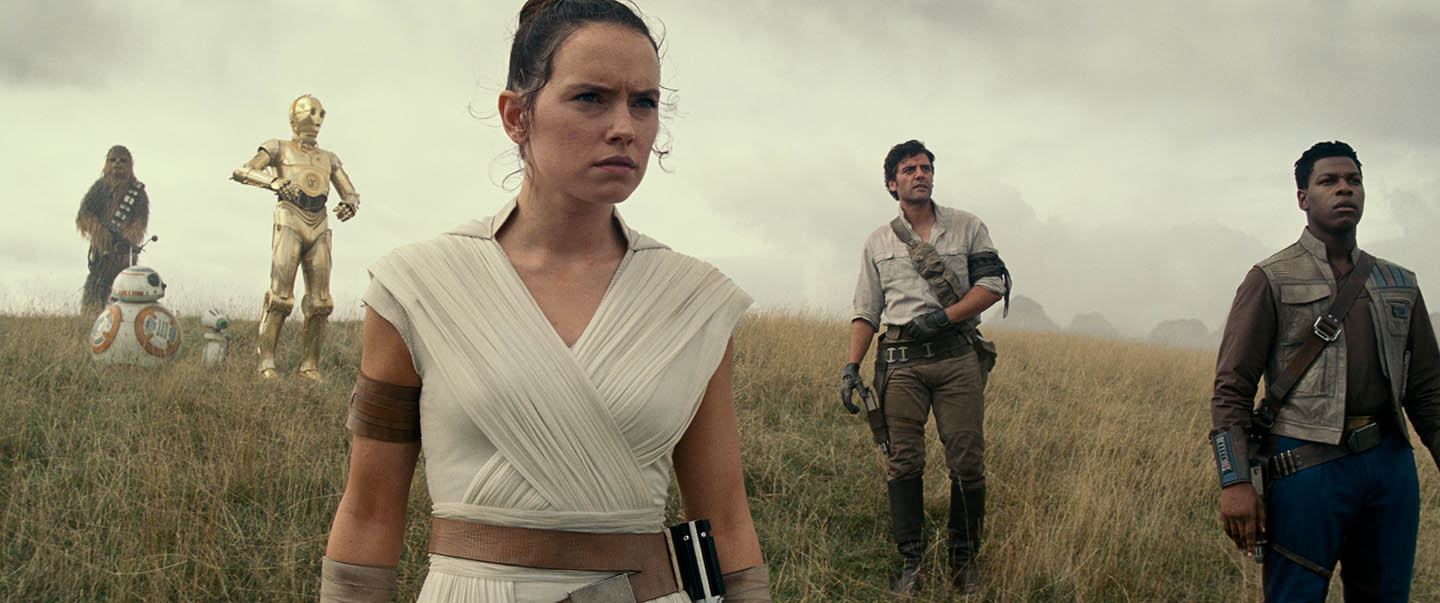
The previous decade closed with the all-time box office champion, Avatar, which stood for ten years until Avengers: Endgame dethroned it this year. Endgame posted $2.798 billion dollars worldwide compared to Avatar’s $2.79 billion. But Endgame also more heavily defeated Avatar stateside, where its domestic box office hit $858 million compared to $760 million. Still, Endgame trails the first entry in the new Star Wars trilogy, The Force Awakens, when it comes to domestic box office. The Force Awakens posted $936 million domestic in 2015, an all-time record for domestic box office.
Obsession with box office numbers also started to become more of an Internet talking point, post-Avatar. I suppose if records are broken, then there is fresh interest (and Avatar proved that through increased attention on international box office, even more records could be broken; look no further than Transformers mega-hauls but also the largest percentage of the Fast and Furious rebirth was from international box office). But because box office has become more common knowledge and a more common obsession in this decade, we thought we’d go back and look at each year to see trends that emerged over the decade. And while the obvious trend is Marvel’s ascent after the first Avengers team-up movie in 2012, there has also been a noticeable move away from adult romance and comedies, instead preferring Disney live-action remakes and self-referential comedies and shifting the R-rated preference to horror films. Two genres that remained strong throughout the entire decade were action movies and family films. One common theme throughout the decade was that the top-grossing actor each year was more often than not the one who starred in the most blockbusters, but rarely in the leading role, more often in a supporting role which freed up their schedule for more big gigs or animated movies.
So join us as we look back at the decade at the U.S. box office.
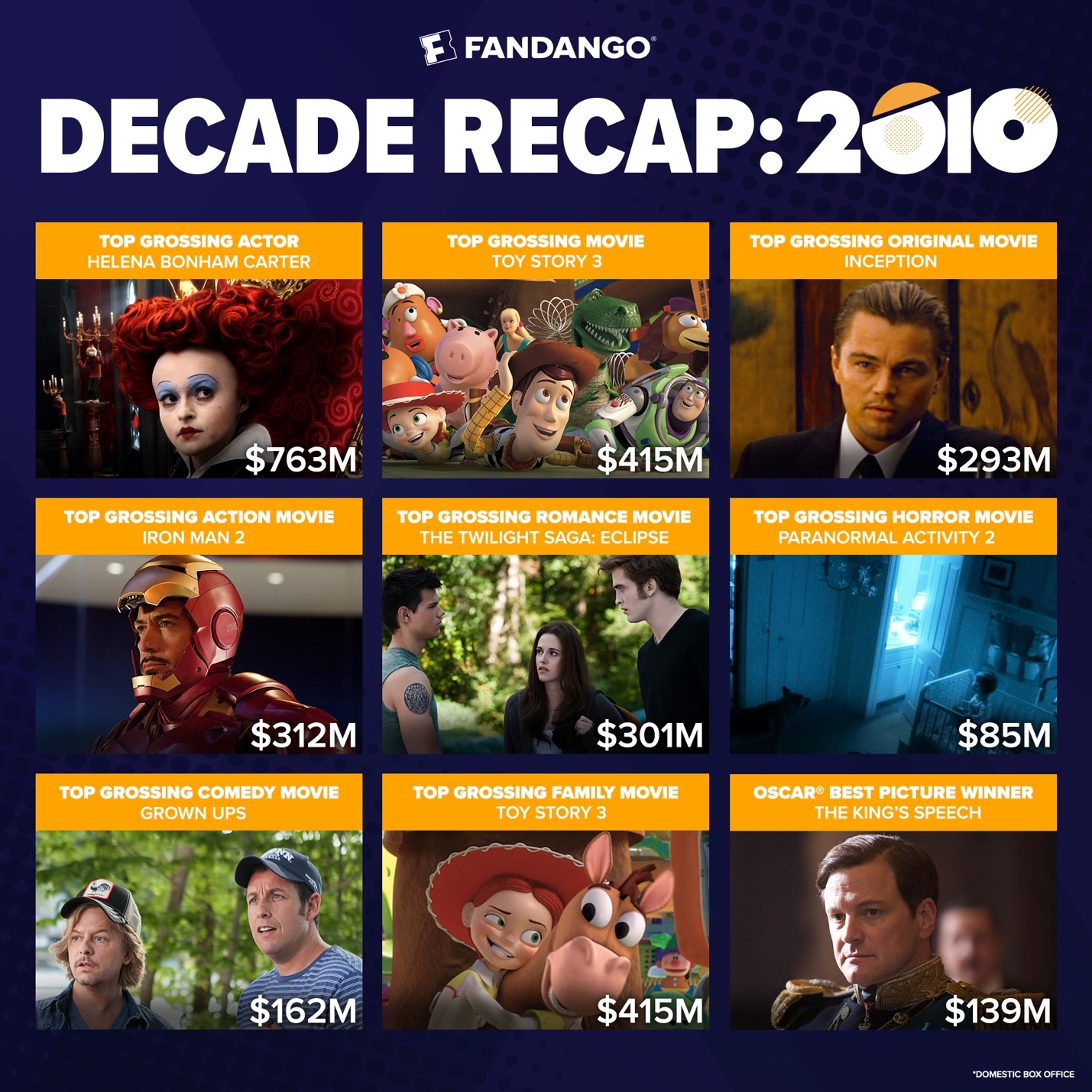
2010
Kicking off our recap, some items of note include Interstellar being the highest-grossing non-animated original film by a long shot for the whole decade. The most bankable original films this decade have been family films and horror films, but you can never count out the visionary Christopher Nolan, who’ll have another original big event film this July in Tenet, starring Robert Pattinson and John David Washington.
Speaking of Pattinson, just look at those Twilight numbers! The much-maligned franchise put up remarkable box office for the final few films in the series. The King’s Speech also posted the highest Best Picture winner box office of the decade (narrowly edging Argo). And Helena Bonham Carter, who was Oscar-nominated for King’s Speech, had quite a year that also included Alice in Wonderland ($334 million domestic) and Harry Potter and the Deathly Hallows — Part One ($296 million domestic).
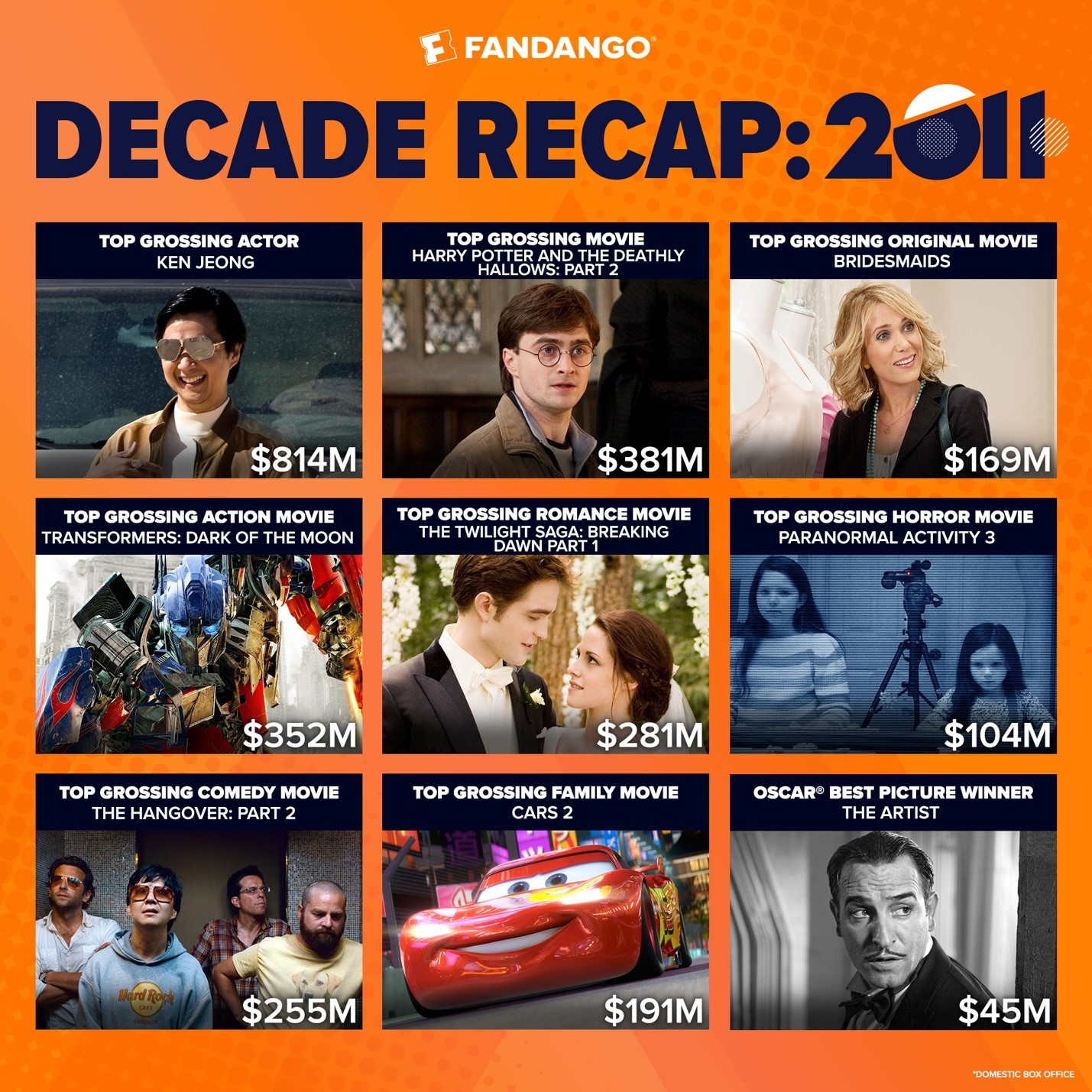
2011
Ken Jeong had quite a 2011, co-starring in not only the top-grossing action movie of the year, but also the top-grossing comedy film, and a few more comedy hits (Zookeeper grossed $80 million domestic and The Muppets scored $89 million domestic). In that arena, comedy was massive at the domestic box office, not just with The Hangover Part II but also Bridesmaids, Crazy Stupid Love ($84 million), the aforementioned Zookeeper and Muppets, Tower Heist ($77 million domestic), Jack and Jill, and No Strings Attached ($72 million domestic each).
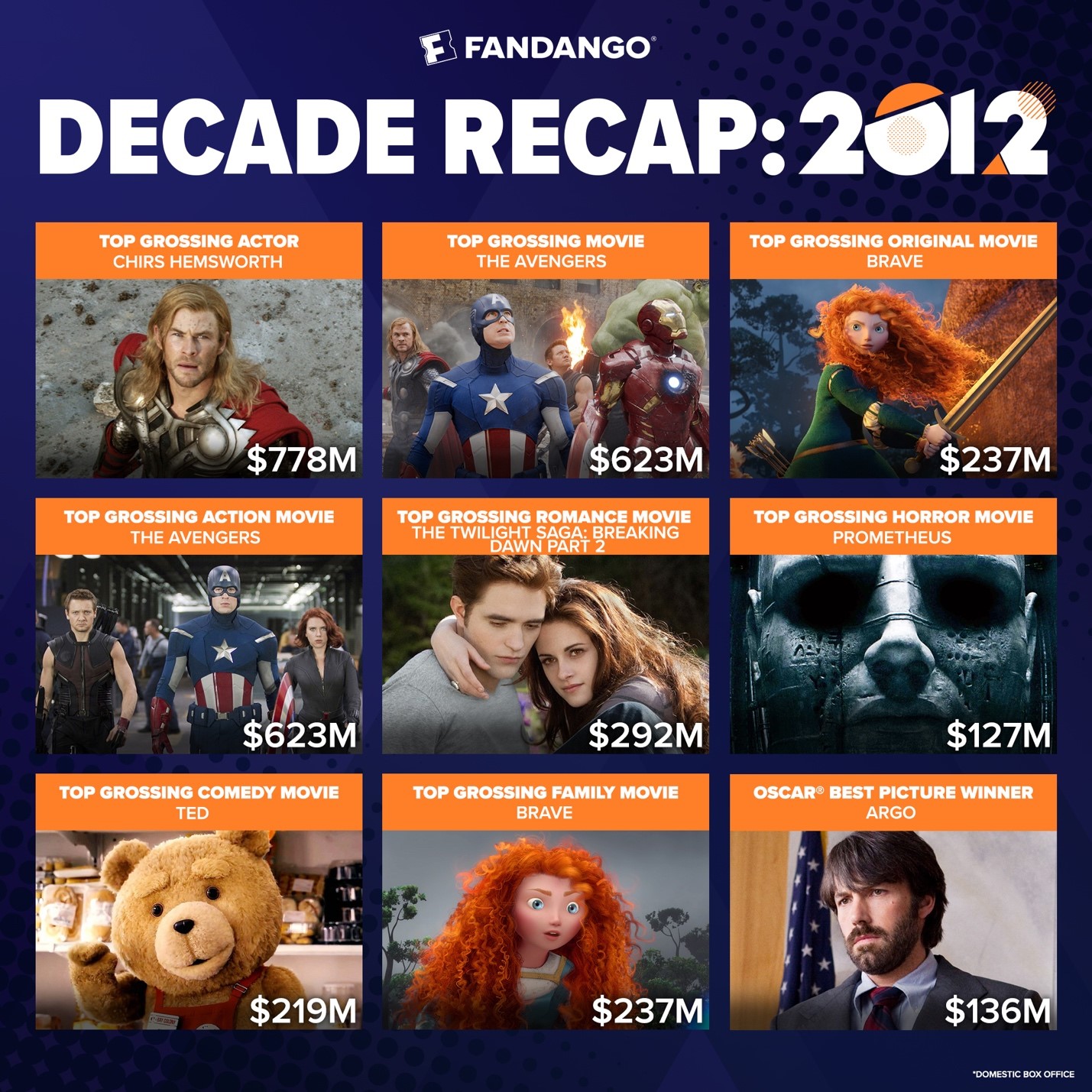
2012
The first Avengers team-up film changed the course for the rest of the industry thereafter, proving that serializing interconnected films could have a massive payoff, though as we’d see from various other attempts to replicate this that Marvel’s 4 years of groundwork to connect five films before releasing Avengers was a patient and rewarding enterprise that couldn’t just be done overnight, despite other attempts. Chris Hemsworth takes the top-grossing actor slot instead of the other Avengers due to Snow White and the Huntsman ($155 million domestic) and Red Dawn ($45 million domestic). But that wasn’t the only trend of 2012, as Brave marked the regularity of a new animated film being the highest-earning original script of the year.
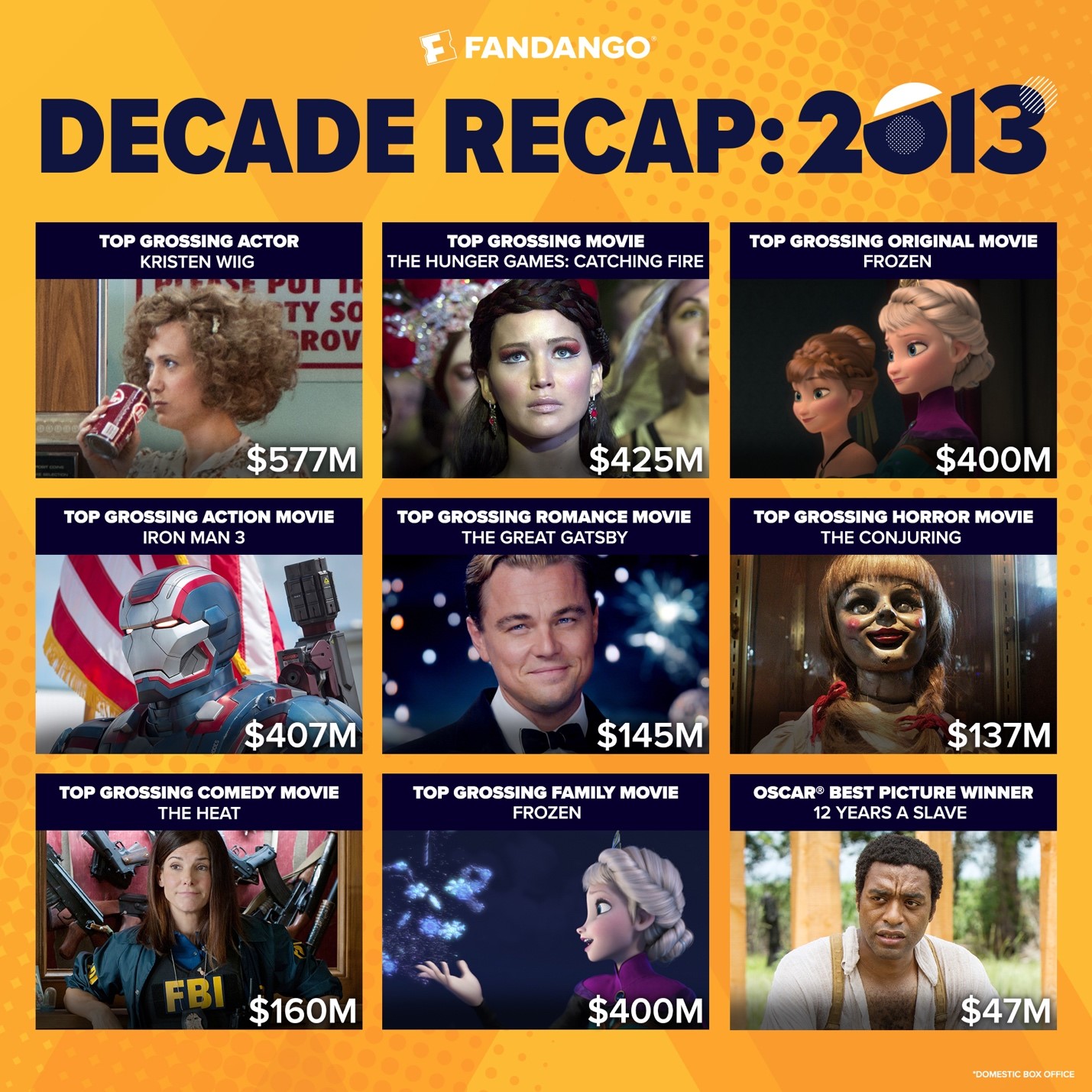
2013
The biggest surprise from this recap is that Sandra Bullock-Melissa McCarthy’s cop comedy The Heat did so much business. But that’s primarily because his previous film, Bridesmaids, is talked about today much more. Still, the carryover goodwill from Bridesmaids to The Heat ($169 million to $160 million) is remarkable. Also, what a year for Sandra Bullock between The Heat and the Oscar-winning Gravity ($274 million domestic)! Though, because Sandra is a leading actress in both films, the box office crown went to Kristen Wiig, whose supporting roles in Anchorman 2 ($127 million domestic) and The Secret Life of Walter Mitty ($58 million), combined with voice work in Despicable Me 2 ($368 million domestic) and Her ($26 million domestic) were just enough to push Wiig into the top-earning slot.
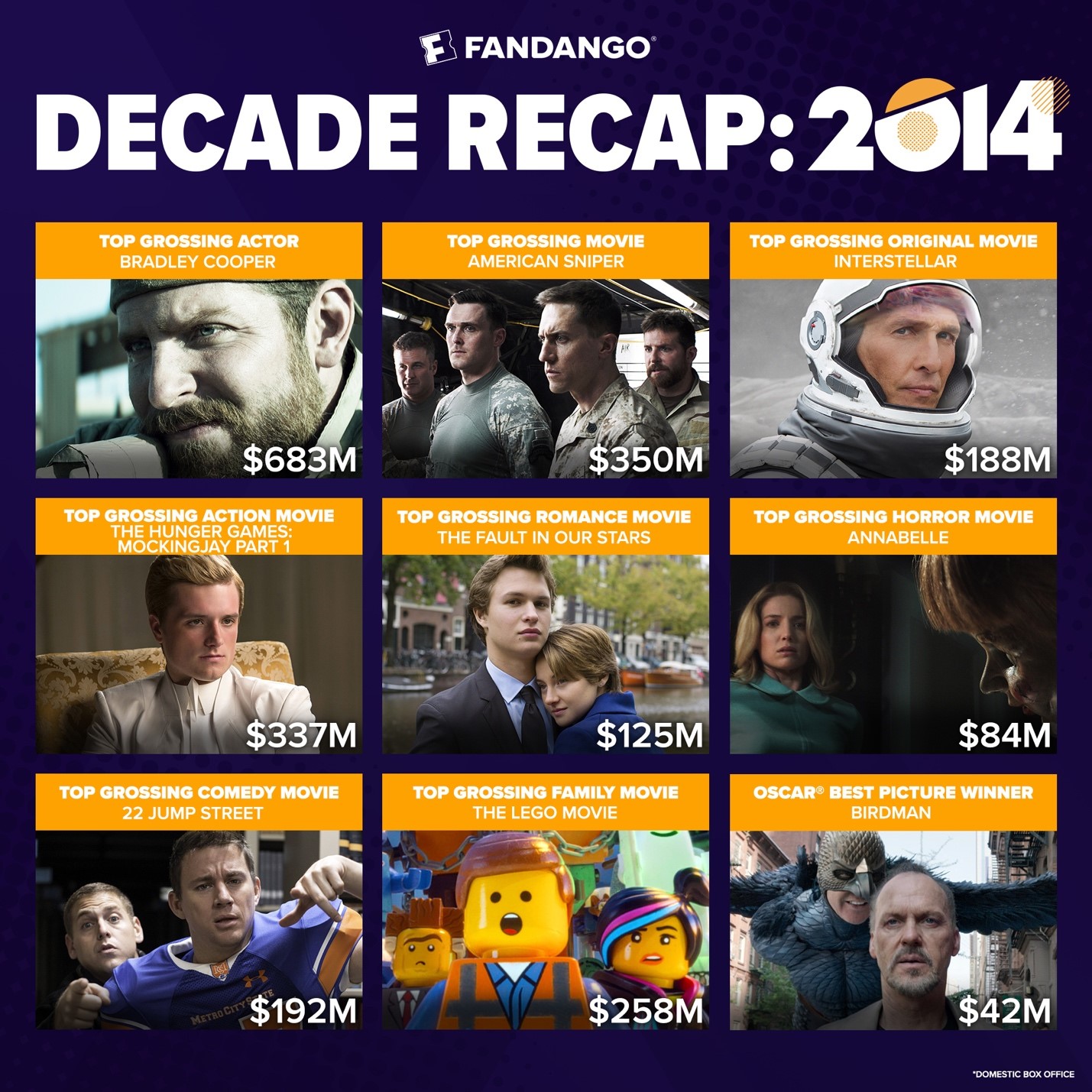
2014
This is the most interesting year on our list as American Sniper is the only non-franchise film to become the top-grossing film in any year on this decade list. Additionally, Christopher Nolan scored another box office original win, The Conjuring Universe was solidified with Annabelle and big shout-out to Christopher Miller and Phil Lord for their one-two punch of 22 Jump Street and The LEGO Movie. As for Bradley Cooper? He defeated his Guardians of the Galaxy co-star Chris Pratt (who also starred in The LEGO Movie) by voicing Rocket Raccoon in the first MCU entry that debut this year ($333 million domestic), proving that Marvel could introduce completely new characters into their established universe and still rake in money at the box office.

2015
2015 marked the return of Star Wars and Jurassic Park franchises, as well as the second Avengers film, Age of Ultron ($459 million domestic). As mentioned in the intro, though Avengers: Endgame set a worldwide box office record, The Force Awakens remains the record holder for domestic box office.
Cinderella also kicked off the Disney live-action remake series and between Marvel, Star Wars, and Pixar 2015 officially kicked off the Disney vs. Universal Pictures box office race as Universal became the first studio to have three films gross more than $1 billion each at the global box office in one calendar year (Jurassic World, Furious 7, and Minions, which did $652 million, $353 million, and $336 million respectively at the domestic box office).

2016
Deadpool seized on fandom trends to turn a meta superhero comedy into one of the biggest hits of the year and, in doing so, also set the precedent that superhero films can be R-rated and make a ton of money.
Scarlett Johansson had a mega 2016, co-starring not only in Captain America: Civil War, but also lending her voice to both Jon Favreau’s first Disney animation remake, The Jungle Book ($364 million domestic), and Sing ($270M domestic). Plus, this writer would be remiss not to mention Hail, Caesar! For ScarJo, too, not because of its $31 million box office, take but because “No Dames” was an all-decade moment, too.
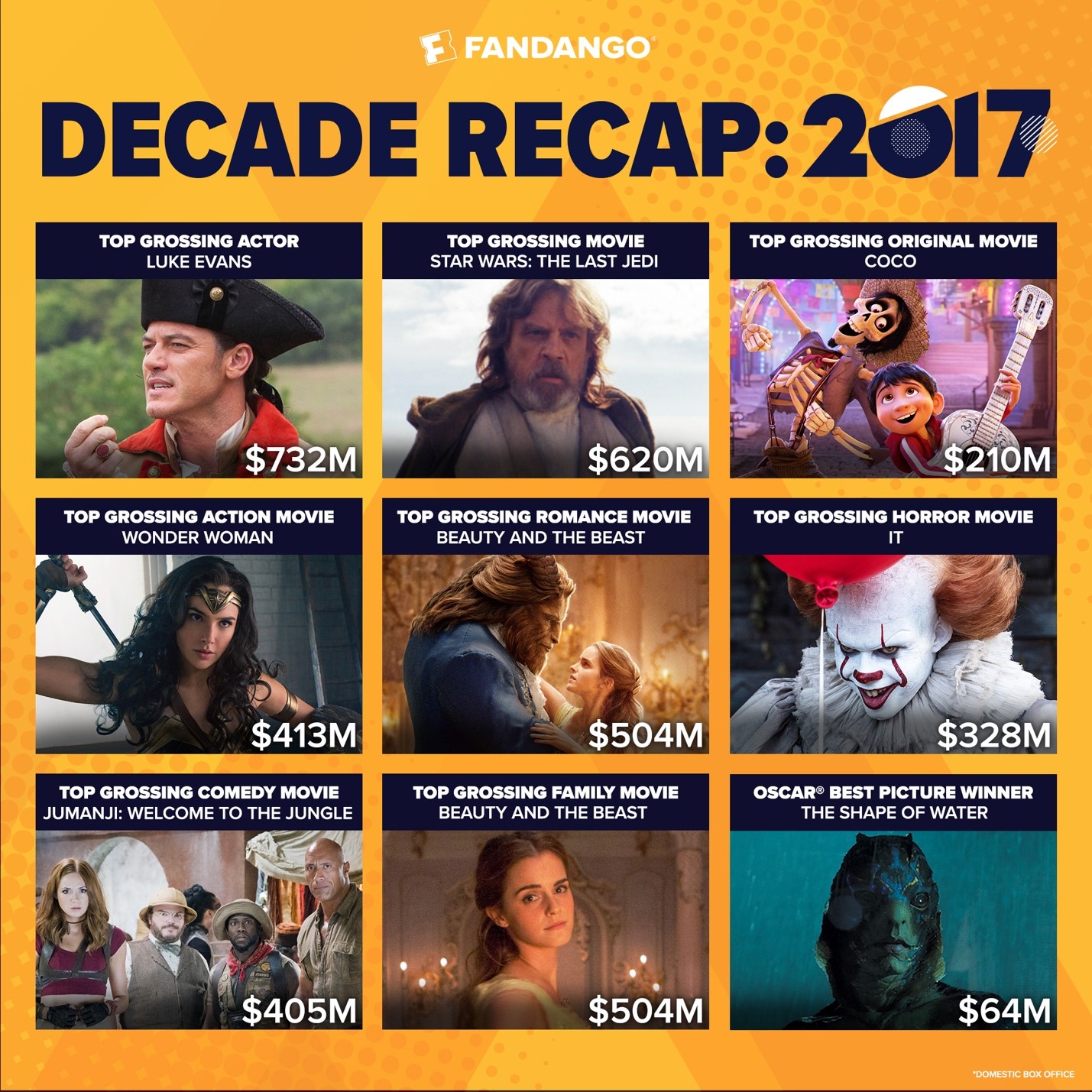
2017
While so many of the biggest hits came from Walt Disney, Star Wars, Beauty and the Beast, Coco, Pirates of the Caribbean: Dead Men Tell No Tales ($173 million domestic), and Cars 3 ($153 million domestic), the studio did not release any films for six months and the global box office champion became Universal which had a number of mid-range hits off smaller budgets, including Despicable Me 3 ($265 domestic), Get Out ($176 million domestic), Split ($138 million), Girls Trip ($115 million), Fifty Shades Darker ($114 million), and Pitch Perfect 3 ($104 million). But it was The Fate of the Furious that set global records as the highest grossing film ever in China ($393 million there as opposed to $226 domestic), that pushed Universal over the top globally. In addition, Warner Brothers set new trends for the next few years, with the massive box office haul of It creating a renewed Stephen King adaptation craze and Wonder Woman becoming the highest-grossing film from a female filmmaker, Patty Jenkins.
Luke Evans topped the box office via the one-two punch of Beauty and the Beast and The Fate of the Furious; and though Disney was quiet for six months of the year, they did start the acquisition process of purchasing Fox.
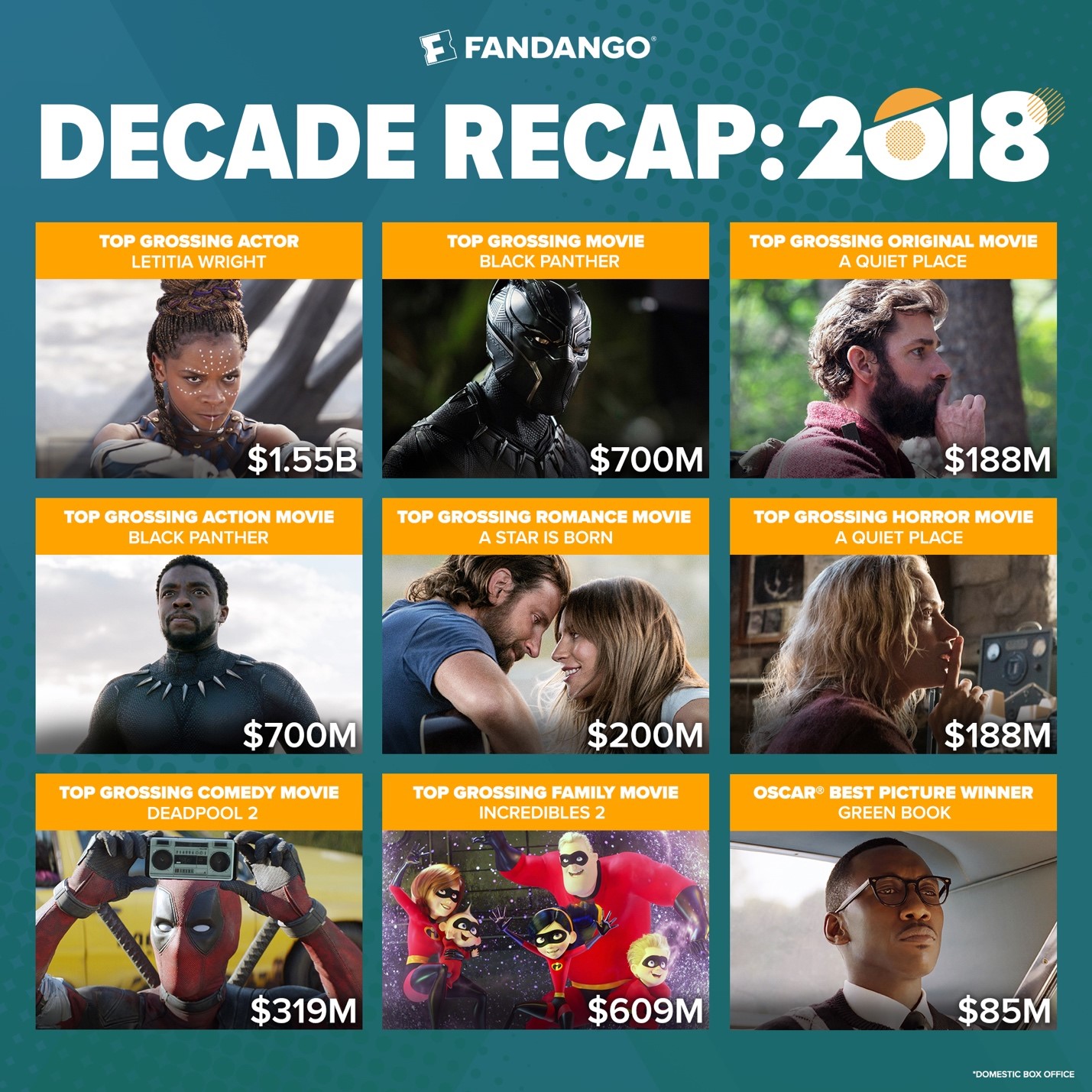
2018
2018 was all about Marvel, and not just Black Panther, even though it was the highest-grossing film of the year and the first Marvel film to receive a Best Picture nomination. The first part of the Avengers vs. Thanos double-movie, Infinity War grossed $679 million, barely behind Black Panther. And Marvel had great success at studios outside of Disney, with Deadpool 2 going strong and Sony furthered their Spider-Man dimension with Venom ($214 million domestic) and Spider-Man: Into the Spider-Verse winning the Best Animated Feature Film Oscar to the tune of $190 million domestic.
Elsewhere, props are due to Bradley Cooper and Lady Gaga making A Star Is Born the only non-Disney live-action remake to top $200 million in the romance category for the entire decade. Though the film is a remake itself, it did feature all-new songs and a complete makeover from its origins.
With Infinity War and Black Panther sharing so many actors, you might be wondering what pushed Letitia Wright into the top spot? Her brief appearances in Ready Player One ($138 million domestic) and The Commuter ($36 million domestic). Quite a year for the British actress who made her Hollywood debut in 2018, and became an instant fan favorite for her computer smarts and love of sneakers in Black Panther.

2019
Yes, 2019 has not had Star Wars: The Rise of Skywalker conclude the calendar year, yet. But this is where 2019 stands in regards to box office as of today. With a new worldwide champ in Avengers: Endgame and absolute dominance by Walt Disney Pictures which outright released or had a hand in production of all of the seven top-grossing films of the year (Spider-Man: Far from Home being a dual release with Sony, $390 million domestic). Samuel L. Jackson gets the ultimate champion of the entire decade in a singular year by co-starring not just in Endgame and Spider-Man but also Captain Marvel ($427 million). As none of the actors in Rise of Skywalker appeared in Endgame and/or Captain Marvel, we feel very safe in crowning Samuel L. Jackson the king of 2019’s box office. Plus, the actor is already the highest-grossing actor of all time and he just keeps distancing himself from all comers as Nick Fury is integral to all facets of the Avengers.
Quentin Tarantino’s Once Upon a Time in Hollywood is in the Comedy category at the Golden Globes (where it’s favored to win) and after taking a poll in the office we agree that it’s comedic enough to place as the top comedy of the year. But that is also out of necessity, as comedy and romance both struggled at the box office while those two options become a regular upload to streaming services. The next closest comedy, that’s fully a comedy, was Good Boys (which made a very respectable $83 million domestic). And although It Chapter Two did not earn as much as the first film, the return on Jordan Peele’s Us solidifies the genre as extremely bankable in theaters, with a much lower cost on production than most sequels that underperformed this year. If we had an award for biggest tragedy of the year, it’d most definitely be Joker, even though Joaquin Phoenix declares in the film that his life isn’t a tragedy but a comedy, but Todd Phillips’ origin for the famed character put a defining comic book cinema stamp to wrap up the decade, leaning hard into the R-rating and laughing all the way to the bank with $333 million domestic and more than $1 billion worldwide.
Do you think Rise of Skywalker has what it takes to top Avengers: Endgame and become the ultimate champion of the decade? Let us know as we prepare for the release of that film.



